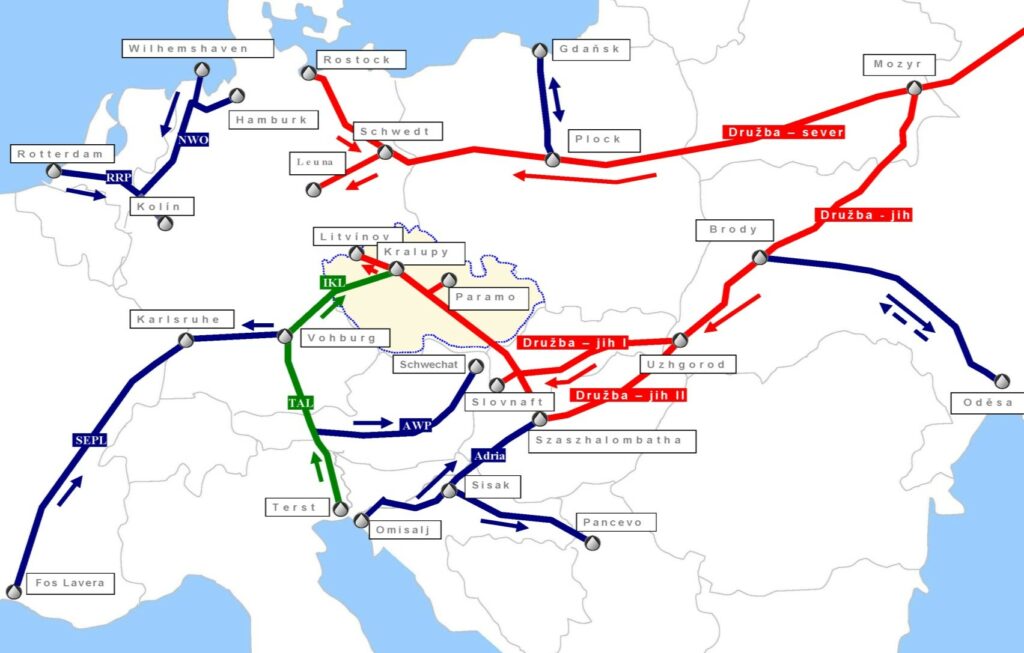The Transalpine Oil Pipeline (TAL) is one of the most important oil arteries in Europe. It connects the port of Trieste, Italy, with Central European countries and supplies oil to refineries in Austria, Germany and the Czech Republic. The TAL pipeline supplies more than 50% of the Czech Republic’s total oil needs.
From Italy to Central Europe
The TAL pipeline starts at the Italian port of Trieste, from where it runs through the Italian region of Friuli Venezia Giulia, crosses the Alps and continues through Austria to Ingolstadt in Germany, where it splits. The western part of the pipeline ends at Karlsruhe, the eastern part at Neustadt. In Ingolstadt, Bavaria, at Vohburg an der Donau, the TAL is connected to the Czech IKL pipeline, which transports the oil directly to the Czech storage tanks at the Central Oil Tank Farm in Nelahozeves. The total length of the TAL pipeline is an impressive 753 km.
MERO ČR is one of the owners of the TAL consortium
The TAL pipeline is managed by the TAL Group (TAL Consortium). In addition to MERO, TAL shareholders include OMV, Shell, Rosneft, ENI, C-Blue, Exxon, Connoco and Total.
The TAL Pipeline in Facts and Figures
- The TAL pipeline has been in operation since 1967 (construction began in 1961).
- Since then, 6 billion tonnes of oil have been transported across the Alps.
- In 2022, the TAL pipeline transported 1 million tonnes of oil.
- 402 ships brought it to the port of Trieste.
- The TAL covers about 50% of the oil supply needs of the Czech Republic (in 2022, about 51% of the oil consumed in the Czech Republic flowed through the TAL or the IKL pipeline, while the remaining 49% was supplied by the Druzhba pipeline. Total annual oil consumption in the Czech Republic is about 8 million tonnes.)
- MERO CR has held a 5% stake in TAL since 2012.
